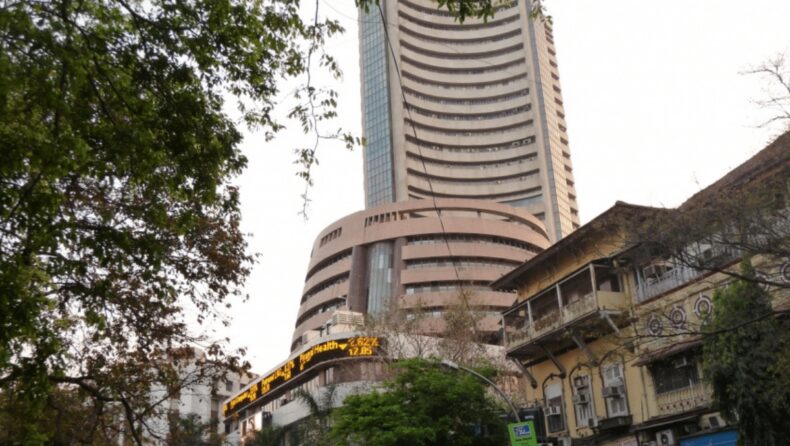Due to Dussehra, the Indian stock market is closed today for trading. The BSE and the National Stock Exchange will both continue to be closed to trading.
Due to Dussehra, the Indian financial markets will be closed on Wednesday, October 5. On Thursday, trading in the stock and money markets will restart. Due to festive holidays, exchanges will be closed for three days this month. Aside from today, the BSE and NSE will be closed in observance of Laxmi Pujan on Monday, October 24, and Diwali Balipratipada on Wednesday, October 26, respectively. On Diwali (October 24), muhurat trading will take place for one hour; the exchange will then notify you of the times. The trading in the Interest Rate Derivatives section and the Currency Derivatives segment will likewise be halted during these holidays.
The list of stock market holidays for 2022, which is accessible on the official BSE website, indicates that there will be no trading activity on these days in the Equity Segment, Equity Derivative Segment, and SLB Segment. On October 5, 24, and 26, the first half of the trading session for both the Commodity Derivatives Segment and the Multi Commodity Exchange of India (MCX), the country’s largest commodities exchange, would be closed to trading (between 9 AM and 5 PM). On October 5 and 26, they will resume trading in the evening session from 5 PM to 11:30/11:55 PM.
The agricultural commodity exchange, the National Commodity & Derivatives Exchange Limited (NCDEX), will be closed for trading on October 5 and October 26 for both trading sessions. On October 24, though, it will remain open during the second half. Due to Gurunanak Jayanti, trading will be halted on November 8 (Tuesday) for just one day. The BSE holiday calendar lists 13 official trade holidays for the 2022 calendar year.
Nifty’s momentum will extend towards 17650-17700
“Indian markets are exhibiting strength following a short-term bottom around the Nifty low of 16800 levels last week. We anticipate that Nifty’s momentum will carry on toward the 17650–17700 range. The earning season is about to start with TCS publishing its results on October 10th. IT businesses anticipate reporting solid 9% constant currency on-quarter PAT growth in Q2, which is a seasonally strong quarter. Commentary regarding a weakening global macro and a negative FX impact, however, would be crucial to observe. Strong Q2FY23 results are predicted by pre-quarterly announcements from banking and financial corporations, so this industry may continue to grow in the near future. Pre-quarterly reports and stock-specific action are anticipated in the coming days, according to Siddhartha Khemka, Head of Retail Research at Motilal Oswal Financial Services.
On the back of improved market sentiment, Indian equities indexes rose more than 2% the day before, making up for significant losses on Monday.The broader NSE Nifty 50 index surged substantially by 386.95 points to 17,274.30, while the 30-share BSE Sensex index increased by 1,276.66 points to close at 58,065.47. The top gainers in the 30-share Sensex group included IndusInd Bank, Bajaj Finance, Tata Consultancy Services, Bajaj Finserv, HDFC, Tata Steel, Larsen & Toubro, Wipro, HDFC Bank, and Axis Bank. Only Sun Pharma, Power Grid, and Dr. Reddy’s fell behind.
As investors were more optimistic about future interest rate increases internationally and saw early signs that recent policy tightening was tamping down price pressures in some major world countries, Asian markets climbed on Wednesday.
After US equities concluded the previous session with gains, MSCI’s broadest index of Asia-Pacific shares outside of Japan increased by 0.5 percent. The index is down 0.6 percent this month.
Early trading saw Australian shares up 1.35 percent while Japan’s Nikkei stock index increased by 0.34 percent.
The day after the national holiday, the Hang Seng Index in Hong Kong increased by 3.76 percent, while the markets in mainland China were still closed.
The following is a list of market holidays for the remainder of 2022:

Holiday Impact on Returns
The stock market is actually subject to trends of the year, month, or even the week. A share price can rise or fall. It is because of the changes in the number of traders that are active in the market, or it is even because of the technical analysis that has made historic price patterns more self fulfilling.
The stock market tends to usually perform well in the Month of January because it is when many investors have fresh capital to invest in shares. The share price is known to fall over a period as big traders go on holidays and they sell their high-risk funds.
At the end of the fiscal quarter or the year, you can also see that the stock markets become quite risky or volatile with all the shares proved of companies coming back or reversing.
Read More: Nykaa approves 5:1 bonus share, share prices surge by 11%













